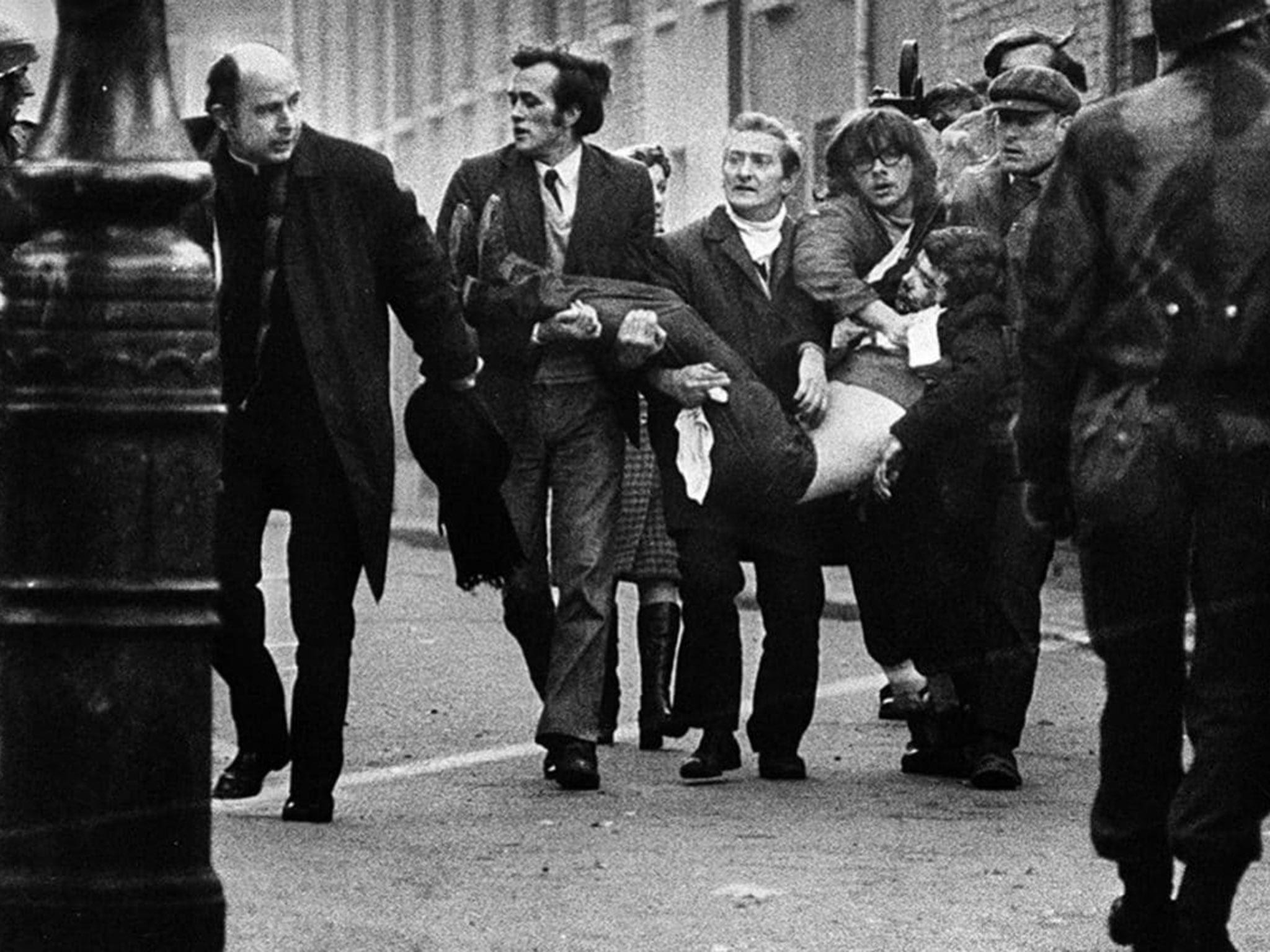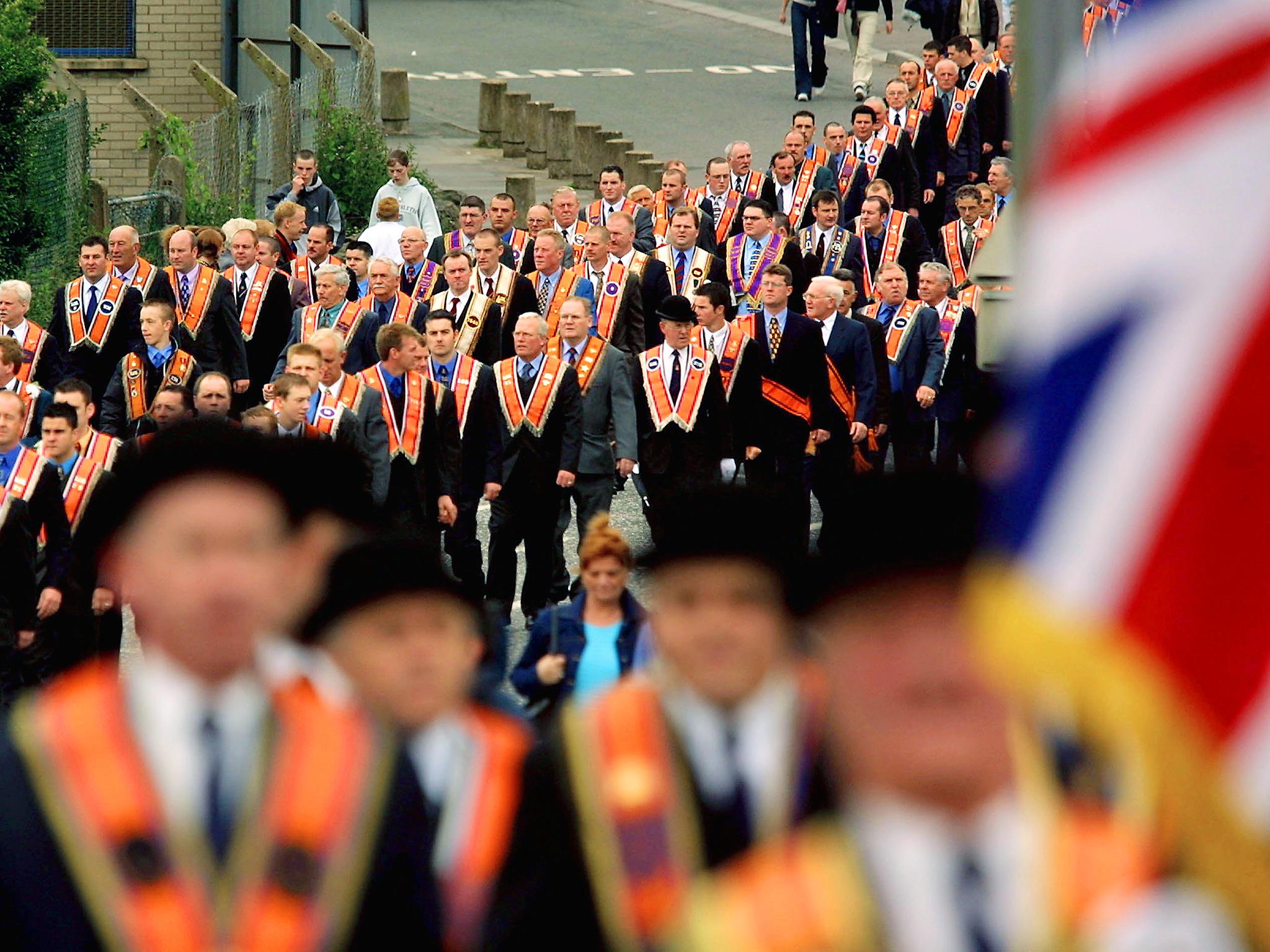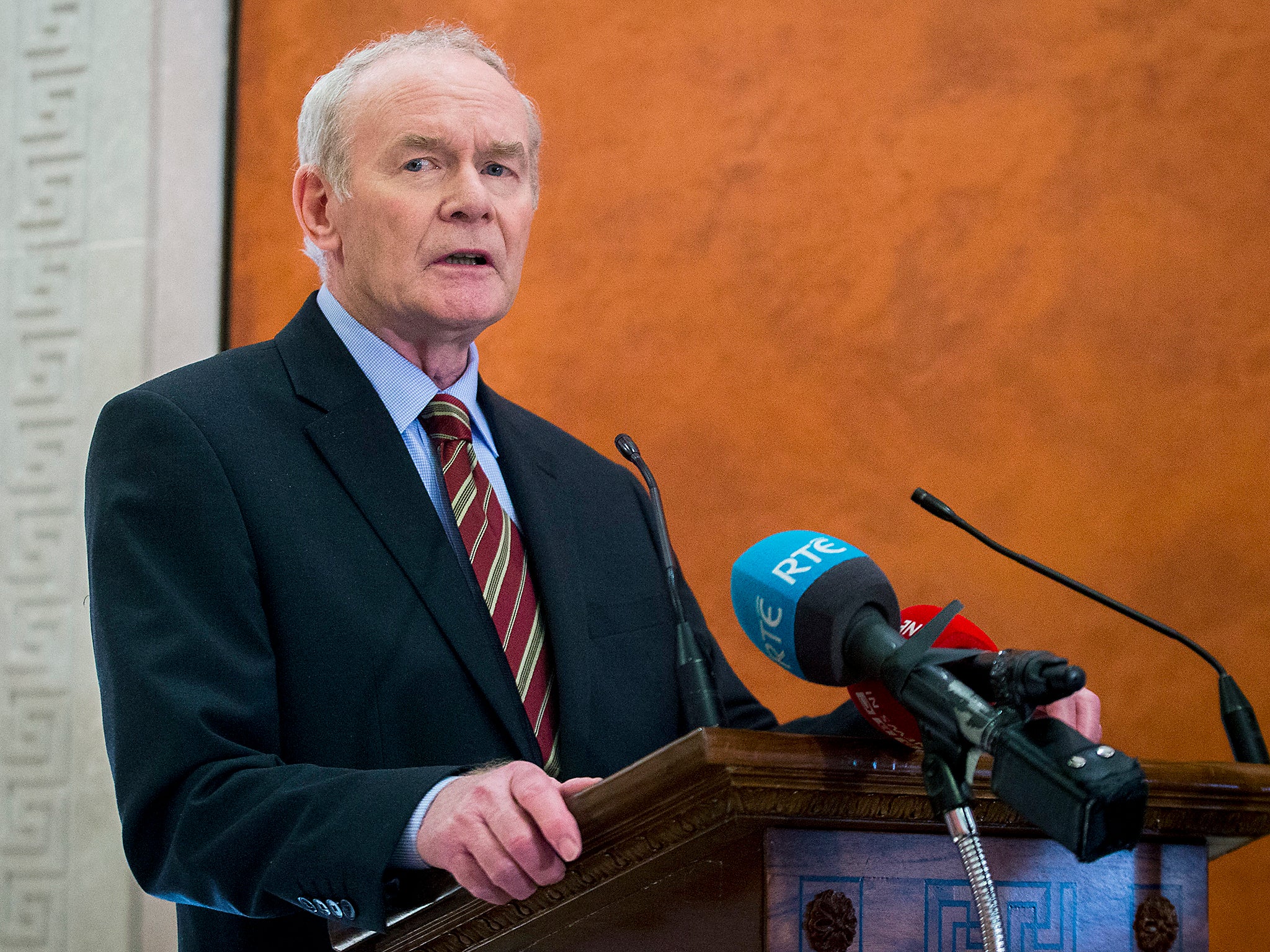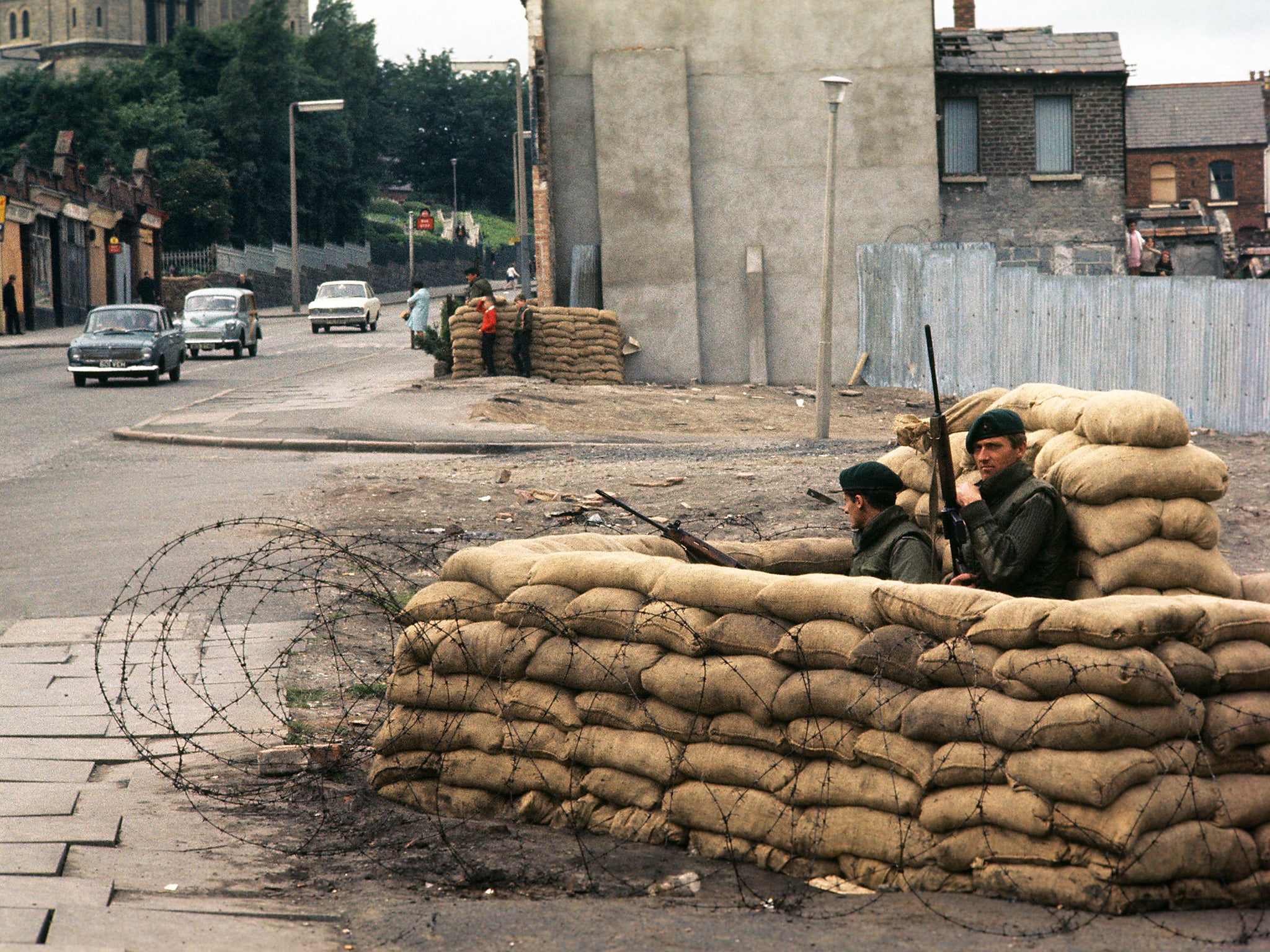St Patrick's Day 2017: Ireland looks to a progressive and potentially united future
For Peter Millar, growing up in County Down during the Troubles, St Patrick's Day was an anomaly. Today, he looks back at the island's blood-soaked past, sees the South reborn through EU membership, and salutes the growing calls in the North for a referendum to finally unite Ireland

It was the strangest St Patrick’s Day of my life. We were in the Marines’ Bar of the American Embassy, in Moscow. The crowd’s big disappointment was that kegs of green lager, specially ordered from Frankfurt, had failed to arrive. The upside was that the chargé d’affaires had gamely agreed to join the marines on stage in an Irish dance, wearing a green tutu.
By far the person most out of place in this boozy festive gathering was one Padraig Murphy, the Irish ambassador, conspicuous amid the leprechaun hats and Paddy’s Day T-shirts in his dark suit with a small shamrock badge in the lapel. This was back in the 1980s: it was not until 1995 that Dublin emulated New York and instituted its own St Patrick’s Day parade to boost tourism.
As a child growing up in the Northern Ireland seaside resort of Bangor, in a primarily Unionist family, St Patrick’s Day was a bit of an anomaly. We marked it in a demure fashion. My mother would send a card with dried shamrock to her emigré brother in the US, while my father, who used to declare “God save Ireland” whenever he heard something outrageous, would slope out for a pint.
St Patrick’s Day this year has been marked in advance by a sea change in the politics of Northern Ireland. An act of supreme political cunning by the ailing Martin McGuinness, a former IRA man turned Sinn Fein peace politician, engineered an election out of a financial fiasco after his call for a new border referendum was rejected by Westminster.
The result was unthinkable. For the first time since partition in 1921, a province-wide election no longer delivered a pro-Britain unionist majority. As a Nobel laureate once sang: “the times. they are a changing”.
The recent elections reflect not just a demographic shift in Ulster’s population, which has been slowly taking place over decades, but also the effects of the UK pro-Brexit vote in a province which voted to remain. The concept of a united Europe has done nothing but good, helping to end decades of bloody conflict.
My own first introduction to Northern Ireland’s sectarian divide occurred at the age of six when I was put into a short-trousered tweed suit, an orange sash draped around my neck. I was sent out to hold the tassle of a banner of King William of Orange crossing the River Boyne as we marched to Finaghy Field on the outskirts of Belfast to celebrate Protestant ascendancy.
I did it not out of any conviction – I was so young at the time – but because the bands were fun. My maternal grandfather had been an Ulster Volunteer, fought in the British Army at the Somme, and was master of an Orange Order lodge. It was what was expected of me.

Later, in my teens, enthusiasm for the Twelfth of July parades waned as I realised ‘King Billy’ was just a local drunk in fancy dress struggling to stay on his horse. Those martial tunes barely concealed an undercurrent of sectarian superiority enforced by the threat of violence.
I and a few friends retired to shelters on the blustery beach front far from the crowds, smoked a joint if we could get hold of one, and told ourselves we didn’t really hate Catholics. How could we? We hardly knew any. When I finally did get to know some, I realised we had lots in common. Religion never entered our discussions: instead, we talked about sex and drugs and sport.
So what nationality was I? I had cheered on England as a child in the final of the 1966 World Cup, but only because there was little alternative. Despite the legendary George Best, Northern Ireland never got anywhere. ‘'Northern Irish'’ was more a negation than an affirmation, a definition of what I wasn’t, not what I was.
I had a UK passport but in Northern Ireland the adjective ‘British’ was subtly laced with sectarianism, an identification with the protestant ascendancy I socially belonged to but had nothing in common with. As soon as I turned 18, I had my first chance to vote almost immediately: in a referendum on the border between ‘northern’ and ‘southern’ Ireland.

With a heavy teenage heart but a clean conscience I did the only right and proper thing: I spoilt my ballot. We all knew the six counties of ‘'Ulster'’ had been gerrymandered back in 1920-22 to guarantee a pro-Union Protestant majority. The referendum was a con trick intended to reinforce the status quo, not to question it.
My second chance to vote, as it happened, was a referendum on whether or not to remain in the Common Market – the embryonic EU. I was 19 and voted enthusiastically for it. Our accession to the EU – Britain and Ireland at once –seemed to create a new alternative to ‘national identity’: European.
The myth about ‘Brits’ being bad at languages has never seemed to apply in Ireland. My grammar school taught French, German and Russian – all of which I studied. A few of us also took Spanish O-level on the side at the local girls’ school.
By the time of the referendum on Europe I had gone to Oxford. I was in the midst of a brief flirtation with Englishness, enchanted by the architecture, punting, jugs of Pimms and stripy blazers (Brideshead Revisited was showing on TV at the time). The linguist in me rounded my vowel sounds and for a while adopted an accent.
Then I discovered the rest of my world. I flew to Paris and hitched through Germany, Belgium and the Netherlands: our ‘'fellow'’ European countries. I took Interrail to Italy, Austria, Greece and Yugoslavia, where I got robbed and had to hitchike home barefoot (they took my shoes as well as my Interrail ticket, passport and money). All I had was £10: a loan from the British consulate in Zagreb, half of which they took back to pay for an emergency passport.
I got lifts from Turkish Gastarbeiter heading for Germany who fed me on tomatoes, watermelon and flatbread. Then Belgian tourists took pity on a young man dripping in the rain at a German Autobahn service station and gave me money for the Channel ferry fare.
When I finally got back to Britain late one night, I had to sleep in a shelter near Dover docks. Not one English car would stop to give this barefoot ragamuffin a lift. But despite the ordeal, I felt convinced: Oxford was my city, but my country was Europe. Radcliffe Square took its place alongside Place de la Concorde in Paris and the Piazza San Marco in Venice.
My first job was with Reuters, British-based but internationalist in outlook, under a German editor. I was posted to Brussels as a trainee and covered the European Commission, travelling down to Strasbourg for meetings of the European Parliament.
Later I was posted to East Berlin, travelled to Warsaw for the rise of the free trade union Solidarity (the first real revolt against Soviet rule) and then, working for the Sunday Times, I lived in Prague; on to Budapest to see the fall of communism; Checkpoint Charlie the night the Berlin Wall came down; and Romania for the fall of Ceausescu.

By the end of 1989, it seemed as if a brave new world really was on the cards. Only in the distant background was there a faint, irritating rattle from the right-wing ranks of the British Conservative Party about Europe in a tone that suggested it was a dirty word, rather than something to celebrate. I never expected it would go on and on and on. Of course, it will be said – and rightly so – that I am part of the “metropolitan elite” so disparaged by Nigel Farage. But I started out as a working-class kid from a seaside town in Northern Ireland.
In contrast, my friend Roger, who is approaching 70 and drives a horse and cart for a local brewery in Oxfordshire, was an adamant Leave voter. He has never had a passport, and never been as far as Scotland. He voted on something he had no knowledge of and disliked because it involved foreigners: the voice of Little England at its littlest.
The Northern Ireland vote in last year’s EU referendum went along sectarian lines: Protestant Unionist Antrim and East Belfast voting Leave, West Belfast and most of the rest of the province voting Remain. Tim Martin, the CEO of Wetherspoon, and Kate Hoey, a Labour MP, were both prominent Leave campaigners primarily because they are Ulster Protestants who saw the Good Friday agreement and open border as a forerunner to Irish unification.

But the Republic of Ireland today is not, as it was in my youth, hidebound to the Catholic Church. It was the first country in the world to approve same-sex civil marriage by popular referendum. It uses kilometres, not miles; its currency is the euro; its people consider themselves Europeans. So far its borders to the UK are open and unmarked.
I remember the concrete and wire cages of the border posts in town, armed guards and hidden snipers waiting in the surrounding countryside. Surely nobody wants to go back to that?
Michael Gove and Boris Johnson said ‘'nobody feels European'’ but they were speaking for themselves. Despite their roots – one born in Scotland, the other raised a half-American semi-cosmopolitan with Turkish ancestry – they have both chosen archetypically English personae, albeit those of an older generation.
They did not and do not speak for everyone in the UK. I have had an Irish passport for more than 30 years, as do both my sons. In the rugby we support Ireland: a united cross-border team with its own non-sectarian Shoulder to Shoulder anthem. My British passport is now relegated to a drawer. I Remain European, and always will.
For most of my life Irish unity was little more than a pipedream. Now there is a glimmer – as yet, just a glimmer – that a new referendum might change that. If so, I hope it will be respected as rigidly as that which gave us Brexit.
Join our commenting forum
Join thought-provoking conversations, follow other Independent readers and see their replies
Comments